ECCE Educator Salary in India: A Complete Guide to Pay, Growth, and Career Opportunities

Introduction The field of Early Childhood Care and Education (ECCE) has emerged as a critical component of India’s educational landscape, driven by the National Education Policy 2020 and growing awareness about the importance of foundational learning. For aspiring educators looking to make a meaningful impact on young minds, understanding the ECCE educator salary structure is…
10 Leadership Activities for Kids in ECCE That Build Confidence and Character
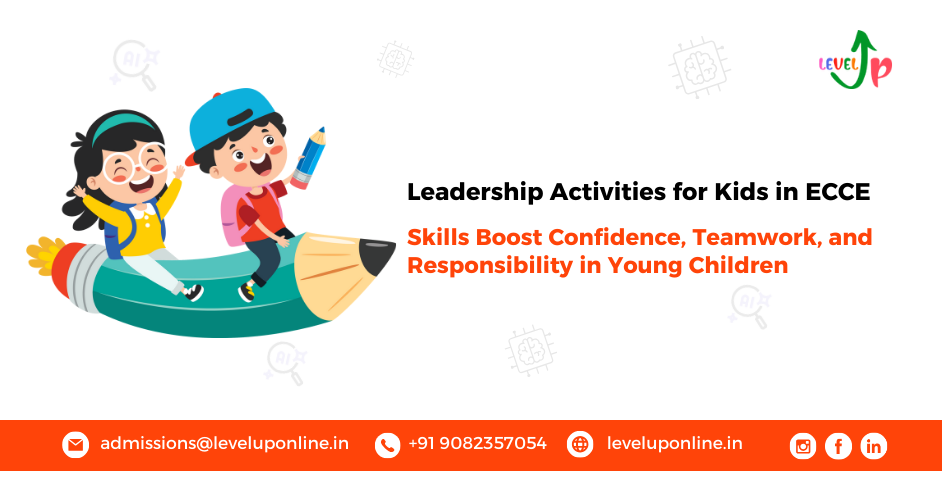
Introduction Close your eyes for a moment and imagine a preschool classroom. Bright colors on the walls, giggles in the air, tiny hands holding crayons. In one corner, a teacher gently says, “Riya, today you’ll be the line leader.” Suddenly, Riya’s eyes light up. She stands a little taller, her smile a little wider. In…
ECCE Guidelines: How to Share Children’s Work Safely
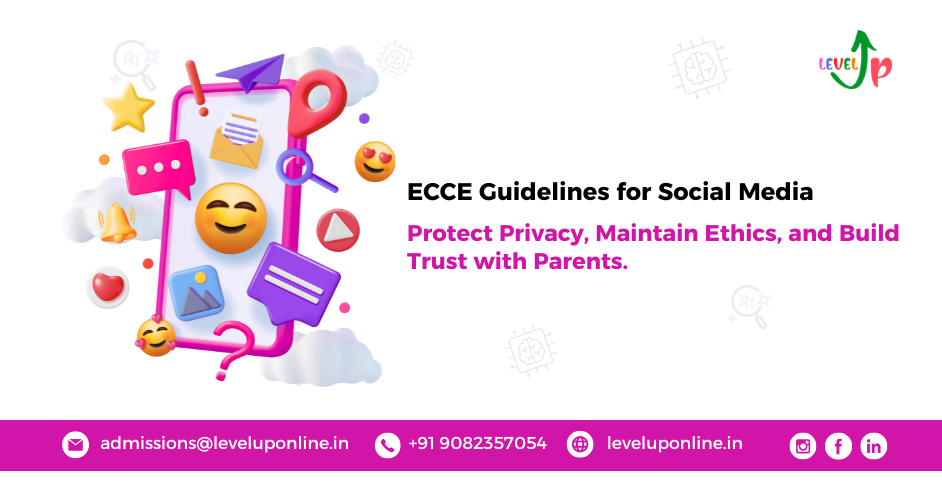
Introduction Celebrating a child’s creativity is a special part of ECCE (Early Childhood Care and Education). Teachers often want to showcase classroom projects, crafts, or drawings on social media or school websites to keep parents engaged. Parents, too, enjoy seeing their child’s progress online. But here’s the question: How can educators share children’s work without…
Should Kids Be Allowed to Interrupt? Practical Tips for Parents and Teachers

Introduction In the world of Early Childhood Care and Education (ECCE), one of the most common challenges parents and teachers face is managing interruptions. Traditionally, interrupting has been labeled as rude. But when it comes to young children, the situation isn’t so simple. Interruptions can happen for many reasons—sometimes out of excitement, sometimes because of…
How to Talk to Your Child About Your Own Childhood: Parent-Child Communication in ECCE
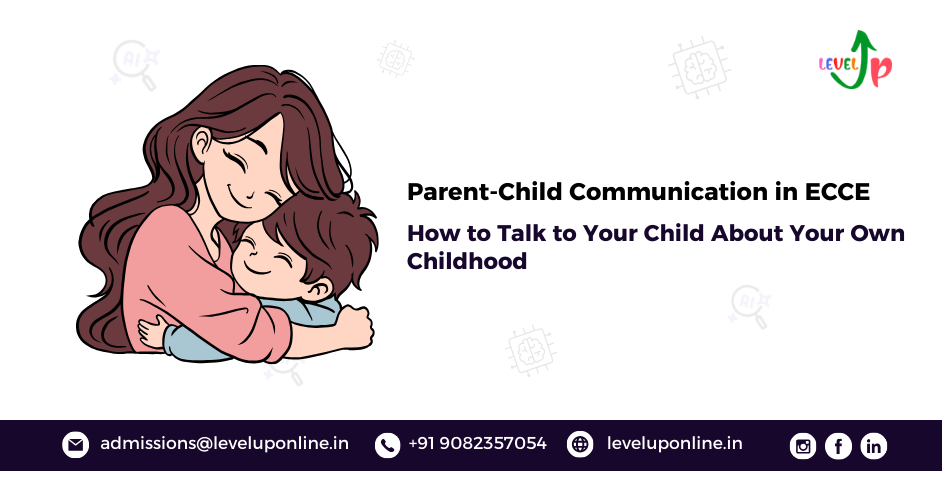
Introduction Do you remember the smell of your favorite childhood snack? Or the excitement of your first school trip? Children love hearing these stories—not just because they’re fun, but because they’re real. In Early Childhood Care and Education (ECCE), personal storytelling is one of the most underrated tools for building strong, genuine connections. When parents…
Teaching Toddlers to Breathe: Mindfulness for the Very Young
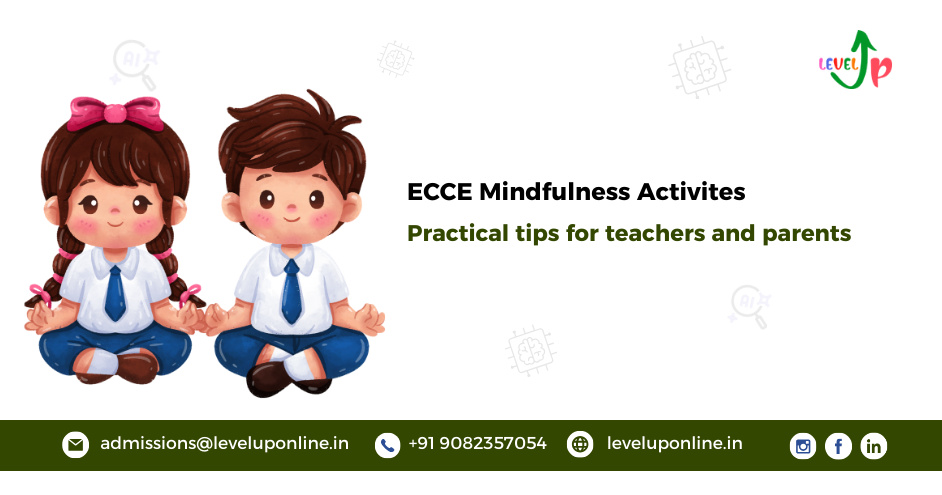
Introduction Picture a busy preschool morning—blocks clattering, chatter echoing, and tiny feet racing from one activity to another. In the middle of this joyful chaos, a two-year-old becomes overwhelmed, eyes welling up, breath quickening. This is where ECCE mindfulness activities—especially teaching toddlers to breathe—can be a gentle yet powerful intervention. Mindful breathing isn’t just for…
Why Toddlers Spin: Vestibular Input and the Need for Movement
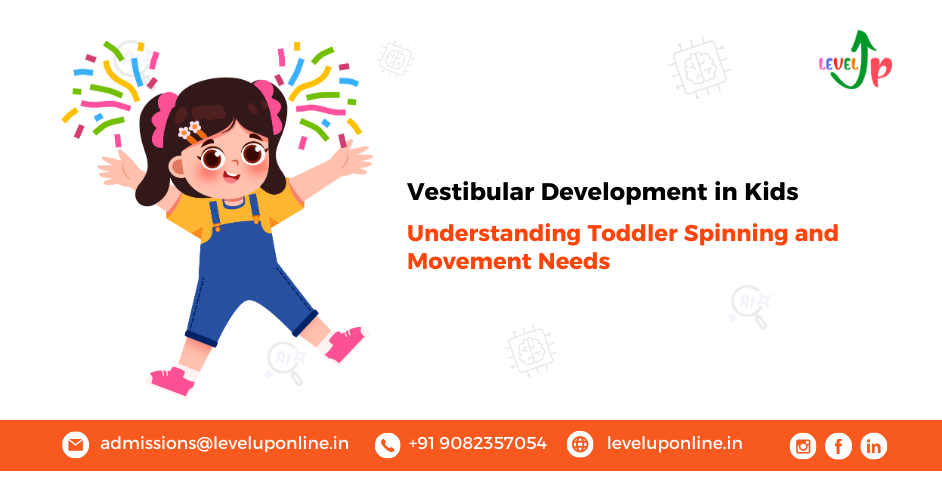
Introduction Imagine your 18-month-old suddenly discovering the joy of twirling in circles—arms wide open, giggles filling the air, and a final tumble to the floor. What looks like a playful moment is actually an important part of vestibular development in kids, shaping the way a child learns to move, balance, and interact with the world.…
Fun and Effective Exercises for Brain Development in Kids

Introduction Imagine this: your child is grinning ear to ear, marching in place, and tapping their right elbow to their left knee as if it’s the best game ever. They think it’s just playtime—but you know they’re actually boosting their memory, focus, and coordination in a big way. That’s the beauty of exercises for brain…
Teaching Toddlers How to Wait: The Value of Delayed Gratification
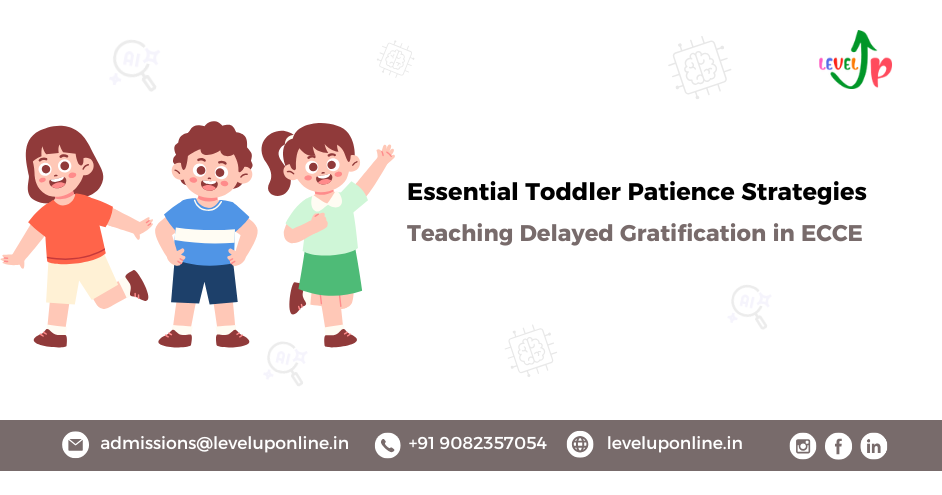
Introduction Picture this: you’re at the grocery store checkout with your three-year-old. They spot the bright candy display and demand one instantly. When you respond with “not now,” the frustration kicks in—tears, pleading, and possibly a tantrum. This is where teaching delayed gratification in ECCE becomes crucial, as it lays the groundwork for patience, emotional…
The Power of Purposeful Play in Financial Learning

Introduction When young children engage in pretend shopping, they’re not just having fun—they’re building vital life skills that will stay with them well into adulthood. Picture a child counting colourful play money, deciding whether to “buy” a favourite item, or swapping roles between customer and shopkeeper. What seems like simple play is, in reality, one…

Close
